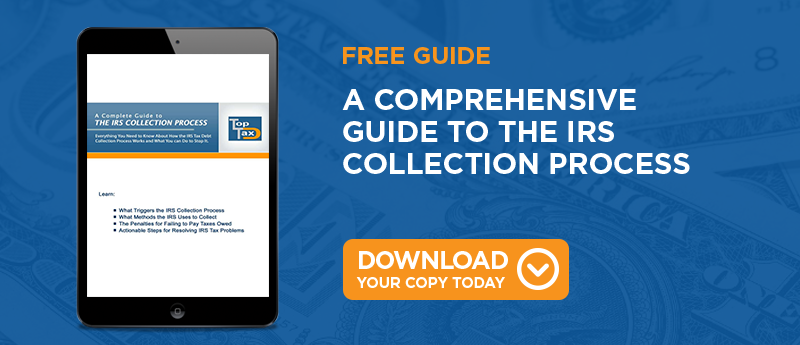
When April 15 has come and gone, you might believe that you have missed your chance to file your income tax return. You also may wonder what kind of punishments or penalties the IRS has in store for you for missing the tax filing deadline.
Despite not filing by April 15, it is not too late to make amends with the federal government to avoid steep fines and penalties. You can use these tips for submitting your return now and paying the least amount of penalties for not filing on time this year.
Request an Extension
Many late filers missed the original April 15 deadlines because of circumstances that were beyond their control. You too may have experienced an event that prevented you from filing on time. The IRS may grant you an extension if you have encountered circumstances like:
- A death in your immediate family
- Divorce
- Serious illness or disability
- Unemployment
- Another life-changing event that prevented you from filing on time
If you can prove that you experienced any of these events prior to or on April 15, you could be granted a filing extension for submitting your return.
Submit Your Return as Soon as You Can
Even if you did not experience a life-changing circumstance, you should still make it a priority to file and submit your return as quickly as possible. Your return will still be late. However, you will avoid accruing a large amount of interest and penalties that come with filing late taxes. You also minimize the amount of interest that will be assessed on what you owe to the IRS.
Filing right away can spare you from these additional charges. If you do not owe the IRS anything, you will not be subject to expensive interests and penalties.
E-file
If you are not eligible for a filing extension from the IRS, you should use e-file or electronic filing to submit your return as soon as possible. E-filing is much faster than mailing in a tax return. When you e-file, your return is received and credited on the same day.
Having the IRS receive and accept your return is crucial for avoiding expensive fines and penalties as well as interest on your tax debt. The IRS can penalize you five percent for each month that you are late filing a return. The maximum amount of the penalties can be as high as 25 percent, which will be added onto what you already owe to the IRS.
E-filing is fast and simple. You can find out what e-filing options are available to you by visiting IRS.gov. Most e-file companies allow you to file and submit a federal tax return at little to no cost.
Figure Out How Quickly You Can Pay Your Tax Bill
After you e-file your return, you should next figure out how quickly you can pay off your entire tax bill. How long will it take you to pay off what you owe to the IRS?
Figuring out the amount of time it will take to satisfy your debt serves two purposes. First, it helps you budget accordingly for paying off your tax bill over a set amount of time. Second, it allows you to get a head start on requesting an installment agreement from the IRS if you need one.
If the tax bill is relatively small, you may be able to pay off what you owe in one or two payments. However, when it is hundreds or thousands of dollars, you may need to request an installment agreement from the IRS. You should use IRS Form 9465 to request an installment agreement in writing.
Make Arrangements to Submit Your Payments
If you owe a large debt to the IRS, you should contact it immediately to make arrangements to pay off the obligation. Once you are set up on a payment arrangement, you can use a credit or debit card to have the monthly payments deducted automatically for you. Alternatively, you can send in a check or money order to the IRS each month to pay on your debt.
If you use a credit or debit card, however, your payments are received and credited the same day you make the payment. If you mail in a check or money order, it may be a week or longer before your payment is credited to your debt. Immediate acceptance of your payment can be crucial to avoiding anymore penalties or interest on what you already owe.
Make Payments
If you have avoided filing because you know you cannot pay what you owe to the IRS, you should go ahead and file anyway. You should then pay anything you can, even if it is a small amount, on your tax debt.
If you avoid filing your return and making a payment on your obligation, you risk incurring civil and possibly criminal penalties for evasion. However, if you file and make even a small payment, the gesture will be received better than if you avoided filing at all.
If you cannot pay anything toward your tax debt, you may work with a tax professional and request an Offer in Compromise from the IRS. An Offer in Compromise or OIC indicates you cannot pay anything at all on your obligation. The IRS will take into consideration before granting you an OIC factors like:
- Your monthly income
- Total assets like your savings or retirement account
- Living expenses like rent or utilities
- Your family size
- The number of dependents you claim
If the IRS finds you cannot reasonably or realistically make payments, it may reduce what you owe or forgive your debt entirely.
Use Your Refund
If you are expecting a refund or if you are eligible for the Earned Income Tax Credit, you can choose to have the IRS take your penalties out of this money. After you file your return, the IRS will determine how much you owe in penalties and interest for filing late. If there is any money remaining out of your refund after the penalties are deducted, it will be sent directly to you as long as you do not owe money to any other government entity.
Think About Getting a Loan to Pay Your Tax Debt
You may consider applying for and getting a low interest bank loan to pay off your IRS debt. This option could be less expensive if you are accruing interest and penalties on your tax obligation.
You should shop around for the best interest rates and compare the total amount that the bank will charge you to the amount the IRS will charge you over the same amount of time. It could be much more affordable to get and pay off a loan rather than an IRS debt that will have interest and penalties added to it each month.
Missing the April 15 tax filing deadline does not have to be a disaster for your finances. You can still file your return and minimize the amount of interest and penalties the IRS will assess on your tax bill. Filing as soon as possible could spare you the largest amount of penalties and let you keep more of your refund.




